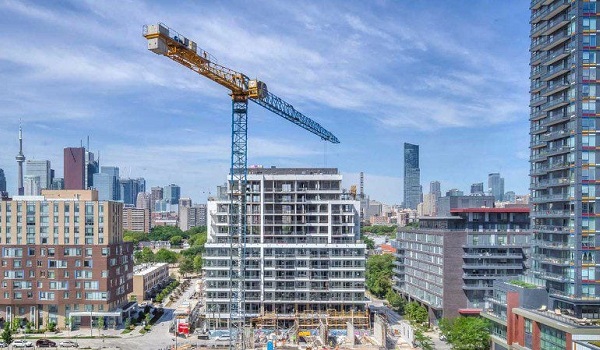What impact will tax breaks have on Ontario developers in making housing more affordable?
As new home sales in the GTA drop to record lows and housing prices stay high, some developers in Ontario are calling on the three levels of government to reduce fees on new builds so they can pass savings onto homebuyers.
According to the open letter written by the Coalition Against New-Home Taxes (CANT), taxes account for about 29 per cent of the cost of an average condo in Toronto. They say tax costs per home in real dollars have increased nearly 600 per cent in 15 years, and development charges have increased nearly 1,200 per cent.
Experts have long said a multi-faceted approach is necessary to tackle Toronto’s housing crisis. Could giving developers a tax break be part of that solution?“The governments, if they are determined to reduce the cost of new housing, they can start with the elements they directly control,” said Murtaza Haider, a professor at Toronto Metropolitan University’s Ted Rogers School of Management.
The group of 19 developers, who said they are poised to build 100,000 new housing units over the next 10 years, want:
- The federal and provincial governments to remove HST on all new housing
- The provincial and municipal governments to eliminate land transfer taxes on new construction as a one-time benefit to the initial buyer
Municipal governments to reduce development charges on new housing to the 2009 rate, adjusted for inflation.
In their letter, they said they would be open to any accountability measures to ensure the savings are being passed to homebuyers.
Experts who spoke with the Star generally agreed with the developers that, as long as there is some method of transparency to ensure savings are passed onto homebuyers, tax exemptions could help alleviate Toronto’s high housing prices over time. That being said, they noted governments would need to recoup funds through other taxes or with the help of other levels of government.
Aled ab Iorwerth, the deputy chief economist at Canada Mortgage and Housing Corp. (CMHC), highlighted that research shows development fees and taxes are passed to new homebuyers.
“From CMHC’s perspective, what we need is a lot more housing supply. So effectively, all of these taxes are a tax on new housing supply,” Iorwerth said. “So anything that can be done to reduce these costs, I think would be beneficial for housing affordability in general.”
However, development fees, in particular, could be difficult to reduce because they are, in theory, meant to cover the costs of new infrastructure necessary to support a development, he said.
Nemoy Lewis, an assistant professor in the School of Urban and Regional Planning at Toronto Metropolitan University, believes it’s not realistic to reduce development charges and land-transfer taxes because the city urgently needs the funds.
“We see how municipalities are struggling today to afford vital infrastructure that are needed to accommodate the growth that is expected in this region,” Lewis said, pointing to the recent wide-scale flooding that led to residents being without electricity for hours.
While he doesn’t think all the developers’ requests are realistic — and argues against reducing development fees — Lewis said governments removing HST for certain buyers would help affordability.
If the rule of thumb is that HST represents about 9 per cent of the cost of a home, homebuyers could save about $90,000, Lewis said.
“However, I don’t think that those savings should be transferred to investors or speculators or domestic speculators in the market,” he said. “I don’t think that taxpayers should be fully financing domestic speculations within the market.”
Iorwerth, meanwhile, said investors buying up and flipping the stock is not particularly concerning right now.
“I don’t think prices are going up rapidly enough at the moment for people to make that sort of profitable trade,” he said.
This article was first reported by The Star













